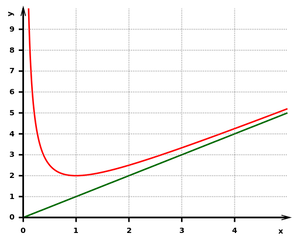Beyond Today’s False Head/Heart Dichotomy

The piece championed a wholistic approach to educating a child, one that centered compassion for both the student and the teacher. My co-author and I were told that this topic was ill-timed. Our education organization was combating an impression that its methods were too soft, rooted in unmeasurable outcomes.
To publish a piece that came down firmly on the side of the heart, versus the head, would damage the image our organization was crafting in order to be taken seriously by donors on the Board.
I remember exactly where I had that meeting, a four-way phone call after business hours. I watched the twilight fall on the grass in the backyard. It would have been interesting to fast-forward all of us in time to 2024, where nearly every initiative in my district since Covid has had something to do with social and emotional health, where we are emerging from the educational wreckage of the pandemic with our students so well versed in mental health terminology it has become a part of their hallway mocking (“You are TRAUMATIZING ME RIGHT NOW”). Strong emotion carves memory.
We did not publish the piece.
In this moment I find myself a very different teacher from the one who wrote that article. I mistrust so much more. I mistrust my personal ability to disentangle my ego from my teaching. I mistrust my need for law and order, mistaking student compliance for academic rigor. I mistrust my own brain and its flawed and irrational relationship with reality, an organ Neil deGrasse Tyson once said was “going to find any excuse to fail.”
I mistrust my ability at large to meet either the academic or the mental challenges ahead of us in schools for which I am neither adequately chosen or trained. I mistrust our society using me as a broken Atlas, holding up a world of K-12 health. I mistrust the American commodification of absolutely everything good. I mistrust the resulting sparkling, jaded sarcasm that our young people eat for breakfast. I mistrust Tik Tok. I mistrust my “journey.” I mistrust trends.
These days, I mistrust both head and heart.

Asymptote: a line that continually approaches a given curve but does not meet it at any finite distance.
At the end of school year 2023-24, I think I have to move forward as a teacher championing something else: something that cuts through the crap that has created the false head/heart dichotomy in the classroom, that flows over and beyond everything that obscures and falsifies excellence.
I’m not sure what to call it; I definitely don’t have it. In his book When Breath Becomes Air, Paul Kalanithi, a neurosurgeon, says this: “You can’t ever reach perfection, but you can believe in an asymptote towards which you are ceaselessly striving.”
Perhaps I can call it an asymptote. Perhaps I can call it truth.
Illustration: StefanPohl, CC0, via Wikimedia Commons































As always, Dina, I appreciate your candor, your humility, and your constant seeking of what is right for teachers and students. I share you concerns and appreciate your courage in speaking clearly the doubts and fears for many of us veteran educators. Perhaps we need to put more emphasis on what is reasonable (from our perspective) and navigate these tricky times with the mantra, “Today I will do the best I can with what I have and what I know.”
You’re the best, as always, Debbie.